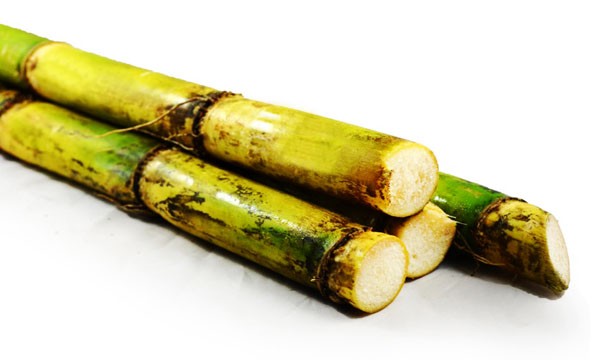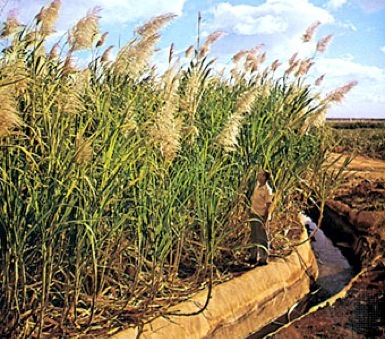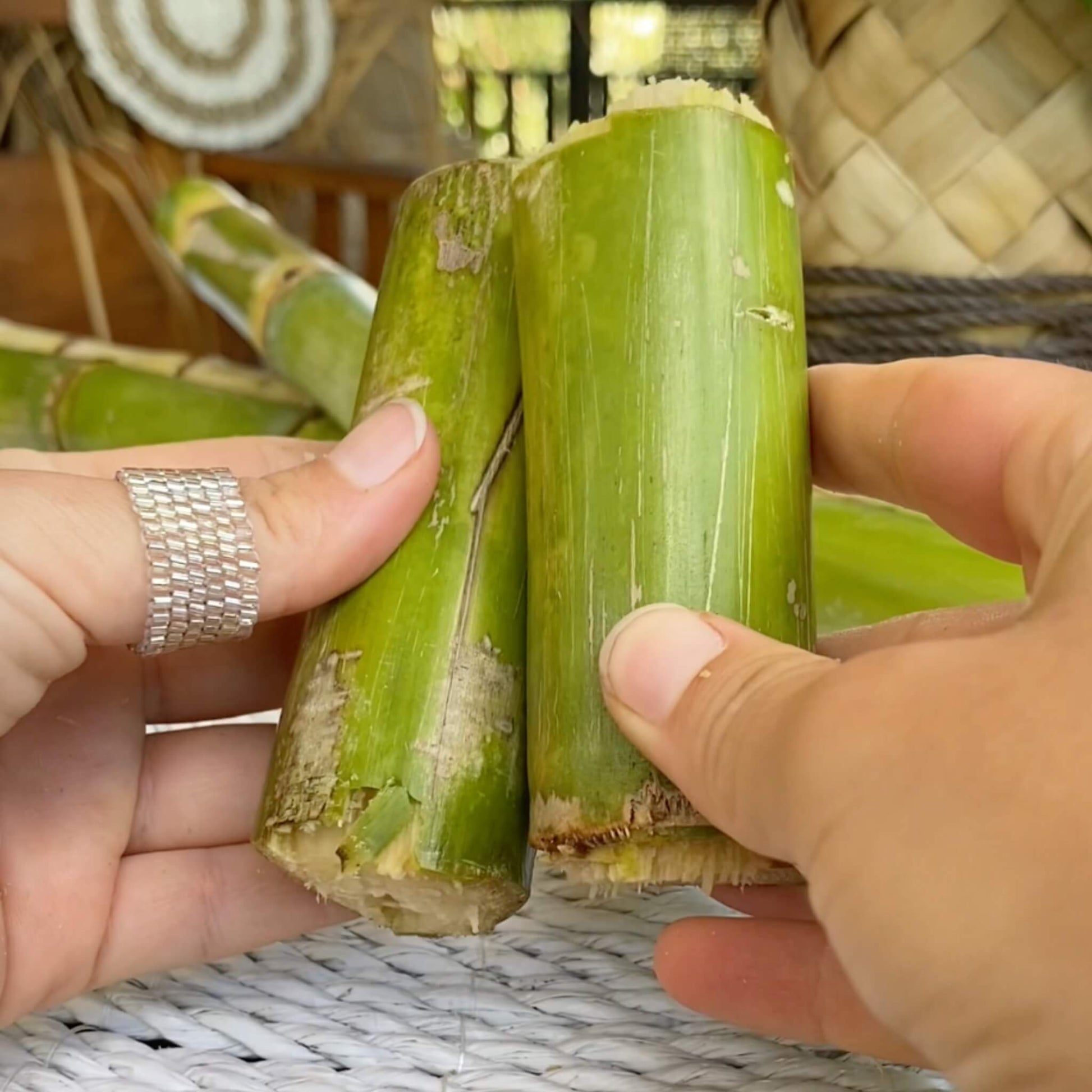Checking Out the Perks of Walking Stick Sugar Processing Chemicals for Lasting Practices
The integration of specialized handling chemicals in cane sugar manufacturing provides an engaging possibility for advancing lasting techniques within the market. These chemicals not only boost extraction efficiency and item clearness however also contribute to considerable reductions in source intake and ecological effect.

Overview of Walking Cane Sugar Processing
Walking cane sugar handling involves a series of complex actions developed to remove and improve sucrose from sugarcane. This process begins with gathering the sugarcane, which is typically done by cutting the stalks short. sugar and cane. As soon as harvested, the walking stick is transported to a processing facility, where it goes through shredding and washing to prepare it for juice removal
The following action entails squashing the shredded walking stick to launch the juice, which has liquified sucrose along with various impurities. This juice is then cleared up, often with heating and the addition of lime, to eliminate solid pollutants and get a more clear fluid. The made clear juice is ultimately vaporized to focus the sugar material, causing a syrup.
The raw sugar is further improved through processes such as cleaning and drying out, eventually creating the final product that is appropriate for intake. Each action in this extensive procedure is crucial for making certain high-grade walking stick sugar, highlighting the intricacy and precision integral in sugar production.
Role of Handling Chemicals

Making use of handling chemicals is integral to the effective extraction and purification of sucrose throughout cane sugar production. These chemicals offer multiple features, including enhancing the clearness of juice, maximizing extraction rates, and facilitating the removal of impurities. Secret processing chemicals consist of phosphoric acid, which aids in the clarification process, and calcium hydroxide, which counteracts acidity and aids in the precipitation of pollutants.
In addition, processing chemicals can improve the overall yield of sugar by making sure optimum sucrose removal from the cane. Enzymatic treatments are additionally gaining prominence, as they can break down complicated carbs right into fermentable sugars, thus raising effectiveness. The application of these chemicals not just simplifies the production processes but additionally guarantees that the resulting sugar satisfies rigid top quality criteria.
In addition, the role of handling chemicals encompasses boosting operational efficiency by reducing the energy and water needed during processing. This not only contributes to cost financial savings however additionally straightens with more comprehensive sustainability objectives within the sugar sector. By optimizing the role and recognizing of these chemicals, suppliers can boost manufacturing effectiveness while preserving product quality and safety criteria.
Ecological Benefits
Sustainable sugar production not only enhances functional performance however also offers significant environmental benefits that add to a healthier community. The utilization of handling chemicals made for sustainability assists reduce the environmental footprint of sugar production. These chemicals usually enable the decrease of hazardous byproducts, cultivating a cleaner production procedure that protects neighborhood rivers and soil quality.
In addition, lasting practices in walking cane sugar processing boost biodiversity. By decreasing chemical runoff and contaminants, these techniques secure habitats and promote the wellness of surrounding flora and animals. The application of environmentally friendly chemicals usually leads to much better source monitoring, as they can help with the usage of natural waste items as plant foods, thus shutting the nutrient loophole and enriching the soil.
Eventually, these improvements not just sustain the sugar market's environmental goals however likewise line up with worldwide efforts aimed at combating climate change and advertising sustainability. Embracing these practices is crucial for the long-lasting feasibility of sugar production and the protection of our planet's resources.
Efficiency and Waste Reduction
Applying lasting methods not only improves environmental outcomes yet likewise drives effectiveness and waste reduction in walking cane sugar handling. The combination of specialized processing chemicals can considerably optimize manufacturing operations, lowering the power and water usage commonly related to conventional techniques. Enzymes customized to improve sugar extraction can lessen the amount of raw product needed, resulting in reduced operational expenses and diminished waste generation.
Additionally, by utilizing non-toxic or eco-friendly processing agents, manufacturers can reduce the threat of wastewater contamination, causing reduced therapy needs and further continue reading this saving resources (sugar and cane). Streamlined procedures enabled by these chemicals can additionally improve the Your Domain Name recuperation rates of sugar, which not just maximizes outcome yet also reduces the quantity of by-products that require disposal
Moreover, implementing real-time tracking modern technologies combined with handling chemicals permits better control over functional criteria, helping with quick adjustments that can stop inefficient variances. On the whole, the tactical use of walking cane sugar handling chemicals advertises an alternative technique to manufacturing performance, aligning economic practicality with lasting practices that benefit both producers and the environment.
Enhancing Product High Quality

In addition, the application of pH regulators can maximize the handling problems, making sure that the sugar keeps its preferable flavor account while reducing the development of unwanted spin-offs (sugar and cane). This not only enhances the total high quality yet also expands the life span of the sugar, satisfying the needs of both consumers and merchants
Moreover, the application of these chemicals is often aligned with lasting techniques, decreasing the ecological influence of sugar production while improving item top quality. By utilizing naturally degradable and green processing agents, suppliers can improve their market appeal and add to lasting sector standards.

Verdict
In verdict, the combination of specialized walking cane sugar handling chemicals provides significant benefits for lasting methods within the sector. Eventually, such environmentally friendly services straighten product top quality with sustainability objectives, establishing a structure for reliable and responsible sugar manufacturing.
The assimilation of specialized processing chemicals in walking stick sugar manufacturing provides an engaging possibility for advancing sustainable techniques within the sector. Each step in this substantial process is vital for guaranteeing high-quality cane sugar, highlighting the intricacy and accuracy inherent in sugar address manufacturing.
The use of handling chemicals is integral to the efficient extraction and filtration of sucrose during walking cane sugar production. The usage of specialized processing chemicals can substantially boost the purity, color, and preference of sugar items.In verdict, the assimilation of specialized walking stick sugar handling chemicals provides considerable benefits for sustainable methods within the market.